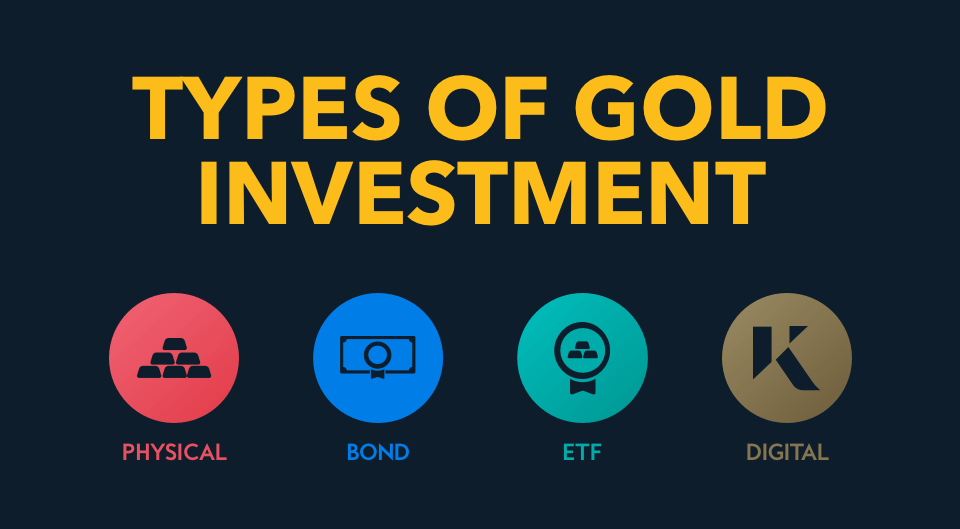How to buy gold for investment
Embark on an exciting journey as we delve into the world of gold investment. This article serves as your ultimate guide, unraveling the secrets of buying gold. Prepare to be dazzled by the glittering allure of this timeless asset. Read on, and let the gold rush begin!
Why Make a Gold Invest?
Due to its propensity to hold its value during uncertain economic times, gold is frequently referred to as a "safe haven" investment. Gold has intrinsic worth, unlike paper money, which is subject to devaluation due to inflation and other economic causes. For investors wishing to diversify their holdings, hedge against inflation, or safeguard their capital during market downturns, this makes it a desirable choice.
Investors decide to buy gold for a number of reasons:
- The inflation hedge is: Gold is a good inflation hedge since it tends to appreciate as the dollar's purchasing power declines.
- Diversification of a Portfolio: Because gold usually goes in the opposite direction of stocks and bonds, adding it to a portfolio can lower overall risk.
- Repository of Value: Gold is a safe long-term investment since it has shown to be a trustworthy store of wealth for generations.
- Availability of liquidity: Gold is an extremely liquid asset that is readily purchased or sold in the majority of global marketplaces.
- Protective Haven: When investors seek safety during periods of geopolitical unpredictability or financial volatility, gold frequently performs well.

Different Gold Investment Types
There are various ways to invest in gold, and each has benefits and drawbacks of its own. Your investment objectives, risk tolerance, and the state of the market all influence the approach you choose.
Gold in Physical Form
Investing in physical gold entails buying real gold goods like jewelry, coins, and bars. For individuals who wish to buy gold outright, this is the most straightforward method of investing in the metal.
Coins made of gold: Governments produce gold coins, which come in different sizes, usually from 1/10th of an ounce to an ounce. The South African Krugerrand, Canadian Gold Maple Leaf, and American Gold Eagle are among the most well-liked coins.
Gold bars: Private mints manufacture gold bars, which range in size from one gram to four hundred ounces. Because they have lower premiums than coins, they are usually more affordable per ounce.
Gold-plated accessories: Gold jewelry can be an investment in gold, even though it isn't as widespread, particularly in areas where gold jewelry is valued as both an asset and an investment. But because of the artistry, premiums are frequently higher.
Mutual Funds and ETFs for Gold
Investing in gold is possible through mutual funds and exchange-traded funds (ETFs) without requiring physical possession of the metal. These financial products are traded on major stock markets and follow the price of gold.
ETFs that track gold: An ETF that tracks the price of gold or holds bullion in gold is known as a gold ETF. A gold ETF's shares each reflect a portion of the fund's gold holdings. iShares Gold Trust (IAU) and SPDR Gold Shares (GLD) are two examples.
Mutual funds for gold: These funds make investments in a range of gold-related securities, like futures contracts or equities of gold miners. Although they provide diverse gold market exposure, they could also come with extra risks related to the underlying businesses.
Equities in Gold Mining
Buying stock in firms that mine and produce gold is known as investing in gold mining stocks. The price of gold, in addition to the company's production costs, reserves, and general financial standing, all affect the value of these stocks.
While gold mining equities can climb higher than the price of gold during bull markets, they also carry additional risks, such as operational difficulties and geopolitical issues in the nations in which they operate. As such, they provide leverage to the price of gold.
Options and Futures for Gold
Derivative contracts such as gold futures and options enable investors to make predictions about the future value of gold. Because of these products' complexity and high potential for gains or losses, experienced investors typically use them.
Gold Contract Futures: An agreement to purchase or sell a certain quantity of gold at a fixed price at a later time is known as a gold futures contract. These contracts need a margin deposit and are traded on exchanges like the COMEX.
Gold-Riding Options: The right, but not the responsibility, to purchase or sell gold at a given price within a predetermined window of time is granted to the holder of gold options. These options can be used to speculate on potential future price movements or as a hedge against price variations.

Factors to Take Into Account When Purchasing Gold
It's crucial to take into account a number of variables that may affect the value of your gold investment while making one. These comprise the state of the market, current affairs in geopolitics, economic indicators, and the kind of gold investment you select.
Buying Guide to Gold
Purchasing gold can be done in a number of ways, depending on the kind of investment you want to make. The procedures for purchasing physical gold, gold ETFs, and gold mining stocks are described below.
The Benefits and Drawbacks of Investing in Gold
Investing in gold has its risks and rewards, just like any other. Comprehending this can assist you in making well-informed choices and efficiently handling your investment.
A Tax Perspective
Depending on the type of gold investment and your place of residency, investing in gold might have different tax consequences. Physical gold and other precious metals are treated by the IRS in the US as collectibles, and if they are held for more than a year, they can be subject to a maximum capital gains tax rate of 28%. Gold mutual funds and exchange-traded funds (ETFs) are subject to standard securities taxes, with a maximum 20% tax on long-term capital gains.
To make sure you meet all reporting obligations and to comprehend the tax ramifications of your gold assets, it's crucial to speak with a tax professional.
Conclusion
For investors seeking to diversify their holdings, guard against inflation, and safeguard their money in difficult economic times, gold continues to be a desirable asset. Your investing goals, risk tolerance, and the state of the market should all be carefully considered before making an investment, regardless of whether you decide to buy actual gold, gold ETFs, or gold mining stocks. You can maximize your gold investing plan and make well-informed judgments by adhering to the principles described in this article.
You May Also Like:







